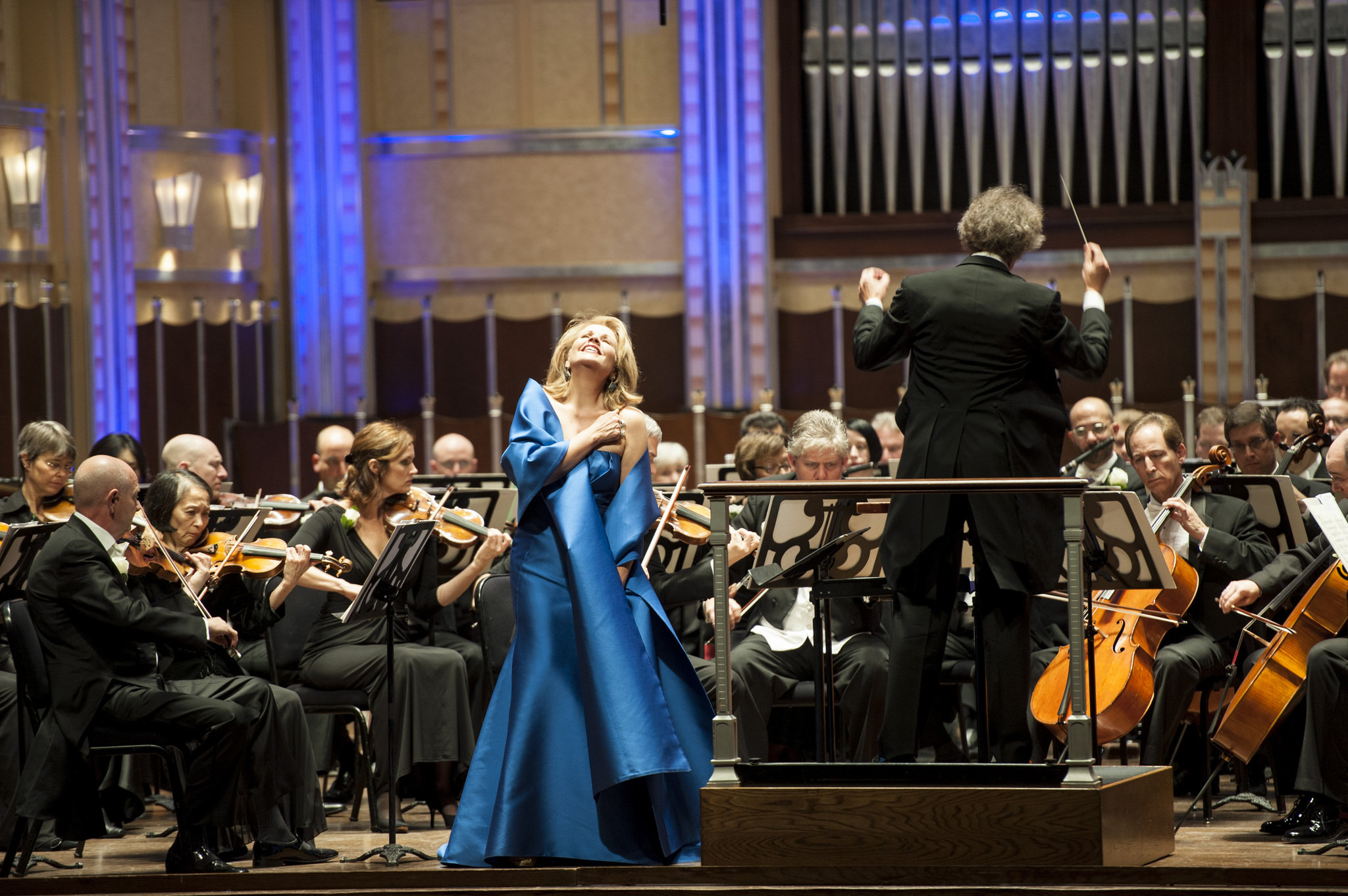
Cleveland Orchestra gala with soprano Renee Fleming proves artistic, financial success
By Mark Satola, The Plain Dealer
CLEVELAND, Ohio — Severance Hall played host to a lot of sartorial finery at Saturday night’s black tie gala to raise money for the Cleveland Orchestra’s music education and community outreach initiatives.
Eleven-hundred people dressed to the nines filled the auditorium to hear a short concert by the near-legendary soprano Renée Fleming in a program of mostly Viennese confections, with a little more substance by way of Richard Strauss’s last opera, “Capriccio.”
Music director Franz Welser-Möst was on the podium for the event, which proceeded without intermission and, including encores, lasted a little over an hour and a half.
The curtain went up to the overture from Wagner’s only comedy, “Die Meistersinger,” which Welser-Möst led at an unusually brisk pace that emphasized the music’s dramatic impact but glossed over some of the textural delights that Wagner provided in his score.
The orchestra responded to Welser-Möst’s fast tempo with dynamic and well-focused playing, and the whole business was over in what seemed like less than ten minutes, clearing the way for Fleming’s arrival onstage in a peacock-blue off-the-shoulder gown.
The “Moonlight” orchestral interlude and Madeleine’s concluding monologue from Strauss’s “Capriccio” was an unusual choice for Fleming’s first appearance, given that the interlude, though musically rich, left her onstage without much to do, though it was worth the wait when she finally gave voice to Madeleine’s hall-of-mirrors dilemma.
Fleming’s voice is a fine marvel, maintaining its creamy tone throughout her entire range, though at the lower end, her words were a little submerged in the shifting ocean of Strauss’s orchestration. She conveyed Madeleine’s bittersweet predicament with as much dramatic flair as is possible in a concert setting, and the orchestra, under Welser-Möst’s sure hand, provided a rich nocturnal backdrop for this autumnal masterpiece.
While Fleming was backstage for a costume change, Welser-Möst led the orchestra in one of Johann Strauss Jr.’s more obscure waltzes, “From the Mountains.” Written for one of the Strauss orchestra’s countless tours — this one to Russia in 1864 — the waltz is a curious affair, with peculiarities of orchestration that would not remain over the years in Strauss’s bag of tricks, such as a melody for high flute and bassoon that sounded more like Mahler than the Waltz King.
On her return to the stage, Fleming wore a close-fitting red gown with a gold scarf across her shoulders, which elicited exclamations from the audience. The second part of the program was devoted to items from Vienna’s so-called Silver Age, with semi-popular songs by Franz Lehár, Rudolf Sieczynski and Johann Strauss Jr. by way of Viennese wunderkind Korngold.
Korngold’s “Waltzes from Vienna” suite was arranged from his score for a 1930s operetta (filmed in 1934, curiously, by Alfred Hitchcock), and the song “I Often Wonder” set the tone for the subsequent numbers, including Sieczynski’s “Vienna, City of My Dreams,” “Why Have You Kissed Me Awake?” from Lehár’s Friederike, and the oft-sung “Vilja Song” from Lehár’s “The Merry Widow.”
The lyric content of these songs is limited to the agonies of love and the delights of Vienna, but Fleming lifted them above their treacly sentiments with an extra measure of artistry and commitment.
Of course there were encores. “I’m in Love with Vienna,” from the Dmitri Tiomkin score for “The Great Waltz” (1938) continued the whipped-cream tributes to Austria’s capital. Real artistry made a final appearance in the second encore, a beautifully hushed rendition of Richard Strauss’s “Morgen,” which seemed to be preserved in crystal.
The thunderous ovations attested to the evening’s musical success, but just as importantly, the benefit concert was a financial success as well, reaping $1.2 million for the orchestra’s education and outreach projects.